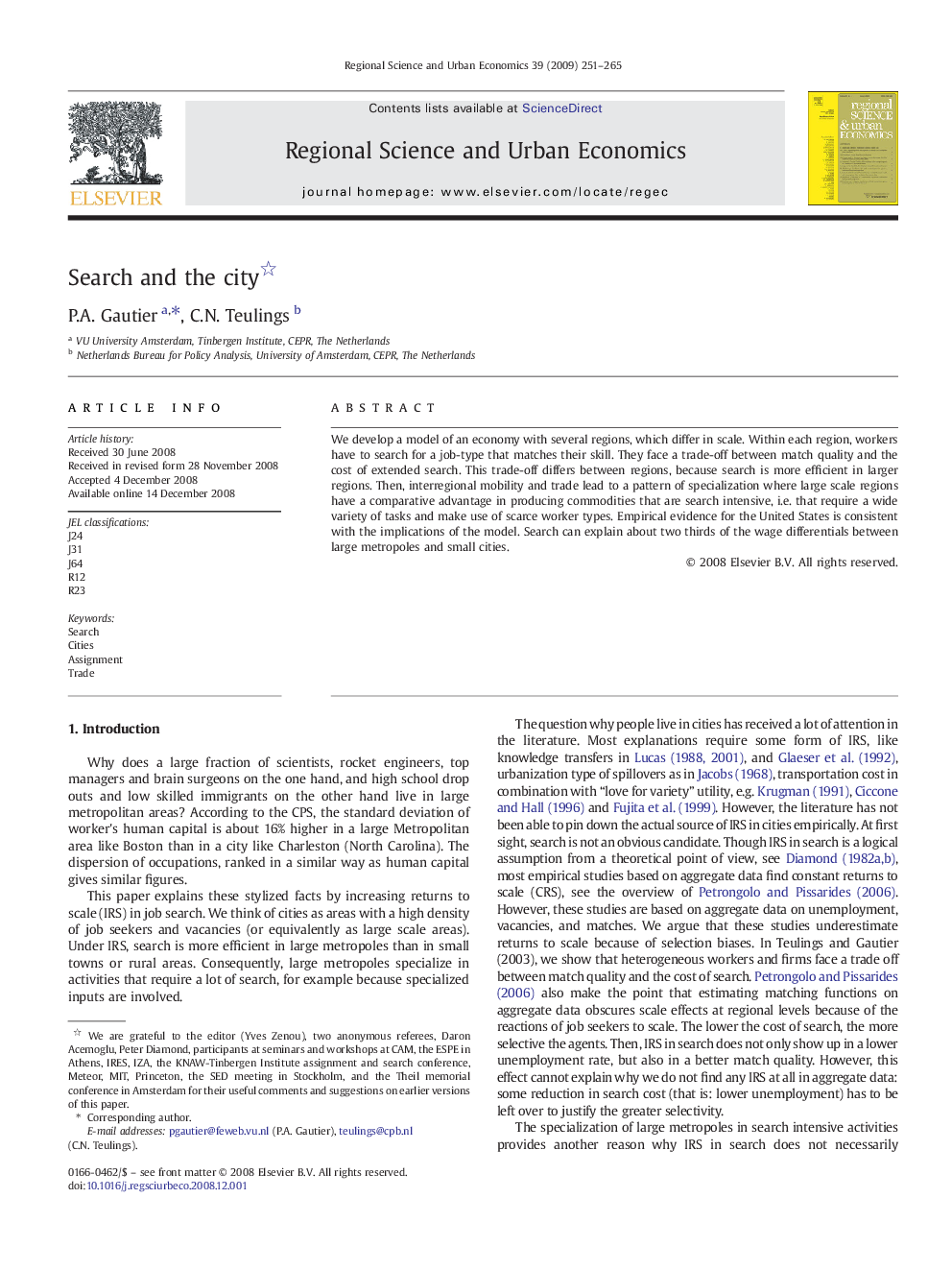| Article ID | Journal | Published Year | Pages | File Type |
|---|---|---|---|---|
| 983890 | Regional Science and Urban Economics | 2009 | 15 Pages |
We develop a model of an economy with several regions, which differ in scale. Within each region, workers have to search for a job-type that matches their skill. They face a trade-off between match quality and the cost of extended search. This trade-off differs between regions, because search is more efficient in larger regions. Then, interregional mobility and trade lead to a pattern of specialization where large scale regions have a comparative advantage in producing commodities that are search intensive, i.e. that require a wide variety of tasks and make use of scarce worker types. Empirical evidence for the United States is consistent with the implications of the model. Search can explain about two thirds of the wage differentials between large metropoles and small cities.
